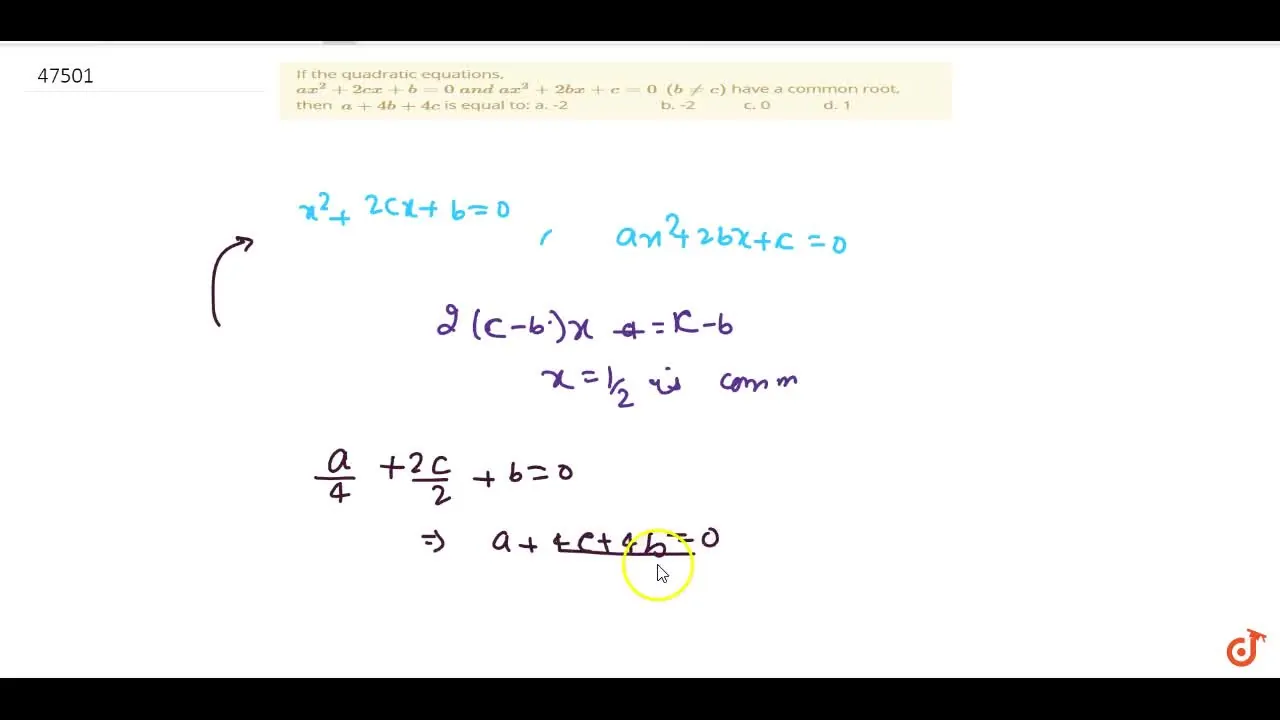If the quadratic equations, ax2+2cx+b=0andax2+2bx+c=0(b≠c) have a common root, then a+4b+4c is equal to: a. -2 b. -2 c. 0 d. 1
Step by step video & image solution for If the quadratic equations, a x^2+2c x+b=0a n da x^2+2b x+c=0(b!=c) have a common root, then a+4b+4c is equal to: a. -2 b. -2 c. 0 d. 1 by Maths experts to help you in doubts & scoring excellent marks in Class 12 exams.
Related Playlists
Similar Questions
If the quadratic equation ax2+2cx+b=0andax2+2bx+c=0(b≠c) have a common root, then a+4b+4c=
View SolutionIf the quadratic equations, ax2+2cx+b=0andax2+2bx+c=0(b≠c) have a common root, then a+4b+4c is equal to: a. -2 b. -2 c. 0 d. 1
View SolutionIf the quadratic equations, ax2+2cx+b=0andax2+2bx+c=0(b≠c) have a common root, then a+4b+4c is equal to: a. -2 b. -2 c. 0 d. 1
View SolutionIF x2+ax+bc=0andx2+bx+ca=0 have a common root , then a + b+ c=
View SolutionIf the quadratic equations ax2+cx−b=0 and ax2−2bx+c2=0,(b+c2≠0) have a common root, then the value of a−4b+2c is
View SolutionIf the equation ax2+bx+c=0and2x2+3x+4=0 have a common root, then a : b : c
View SolutionIf the equations ax2+bx+C=0 and x2+2x+4=0 have a common root then find a:b:c
View SolutionIf x2+bx+c=0,x2+cx+b=0 (b≠c) have a common root then b+c=
View SolutionIf the equations ax2+bx+c=0 ,where a,b,c∈R, a≠0 and x2+2x+3=0 have a common root then a:b:c equals
View SolutionIn the quadratic equation 4x2−2(a+c−1)x+ac−b=0
(a>b>c)View Solution


